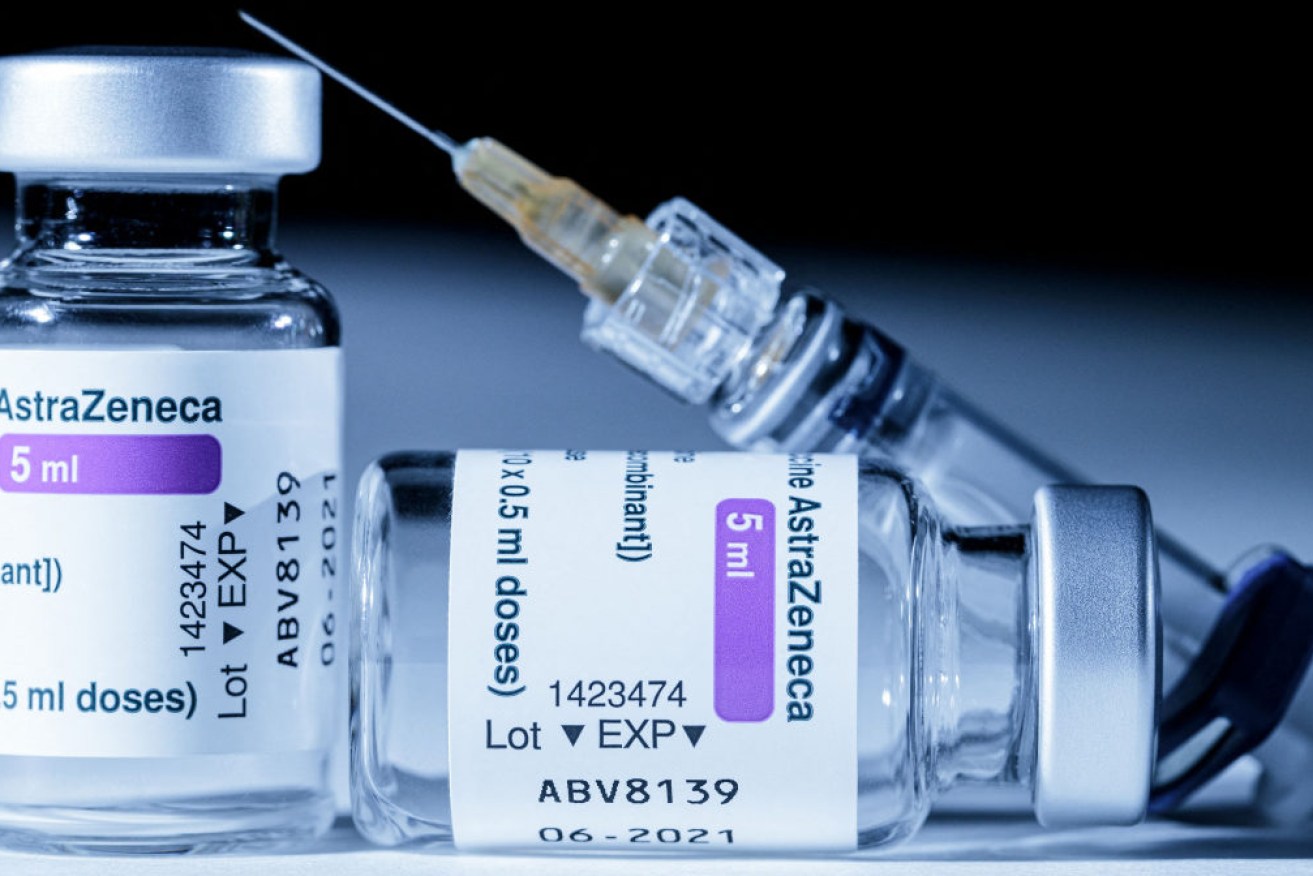Do COVID vaccines stop transmission? Here is what we know


Coronavirus vaccines like AstraZeneca and Pfizer protect us not only against the virus, but help to stop its transmission. Photo: Getty
First and foremost the vaccines are designed to stop people from getting severely sick and dying – and both vaccines available in Australia, AstraZeneca and Pfizer, do a great job at that.
A study published in The New England Journal of Medicine this week, revealed two doses of Pfizer was 88 per cent effective at preventing symptomatic disease from the Delta variant. AstraZeneca was 67 per cent effective.
Both are almost 100 per cent effective in stopping death from COVID-19.
But since vaccines started being distributed across the world, scientists have been hesitant to say if they reduce transmission.
Do COVID vaccines stop transmission?
There are no vaccines that stop humans from getting infected, AMA national vice-president Chris Moy said.
“A lot of people have misunderstood. There is no vaccine that is 100 per cent effective at stopping transmission,” Dr Moy told The New Daily.
So there will be – and are – some fully vaccinated people who still contract COVID-19.
For instance, between April 10 and May 1, six people in New South Wales hotel quarantine tested positive for the virus, despite being fully vaccinated.
In April, Public Health England revealed the results of a study of more than 365,000 households, each with a mix of vaccinated and unvaccinated members.
The results showed Pfizer and AstraZeneca reduced the chance of onward virus transmission by 40 to 60 per cent.
Dr Moy said some people might look at those results and be dismayed, thinking it just halves the transmission probability.
What they need to think about is the R level – the rating system for the virus’s ability to spread.
“We’ve got a Delta with an R level of six. That means every person getting it is giving it to six people,” Dr Moy explained.
With a vaccine, that six becomes three – halving the odds, he said.
University of Queensland professor of medicine Paul Griffin said Australia’s focus on having zero COVID cases is not possible long term.
What is essential to ‘COVID normal’ is lowering the transmission rate, Dr Griffin said.
“We need to have a manageable amount of transmission, and enough people vaccinated so the consequences of cases will be mitigated,” he told TND.
“It’s important to point out that those people are much less likely to get severely sick. And they’re half as likely to pass it on.”
What about Delta?
As we know, Delta changes everything.
One UK study published in July showed Pfizer and AstraZeneca offered slightly lowered protection against symptomatic Delta.
We can also expect a small drop in the protection against transmission, Dr Griffin said.
“The thing with Delta is we know it’s more infectious and there’s more of it out there. So all of those things are probably slightly reduced,” he said.
The race is on
Professor Griffin said the entire world is locked in a race against the virus – we’ve got to achieve a majority vaccination before the variants become too strong.
“Every additional susceptible host is an opportunity for the virus to develop variants of concern,” Dr Griffin said.
“The more people vaccinated, the lower the transmission, the less replication and the less likely we are to see a new emerging variant.”








